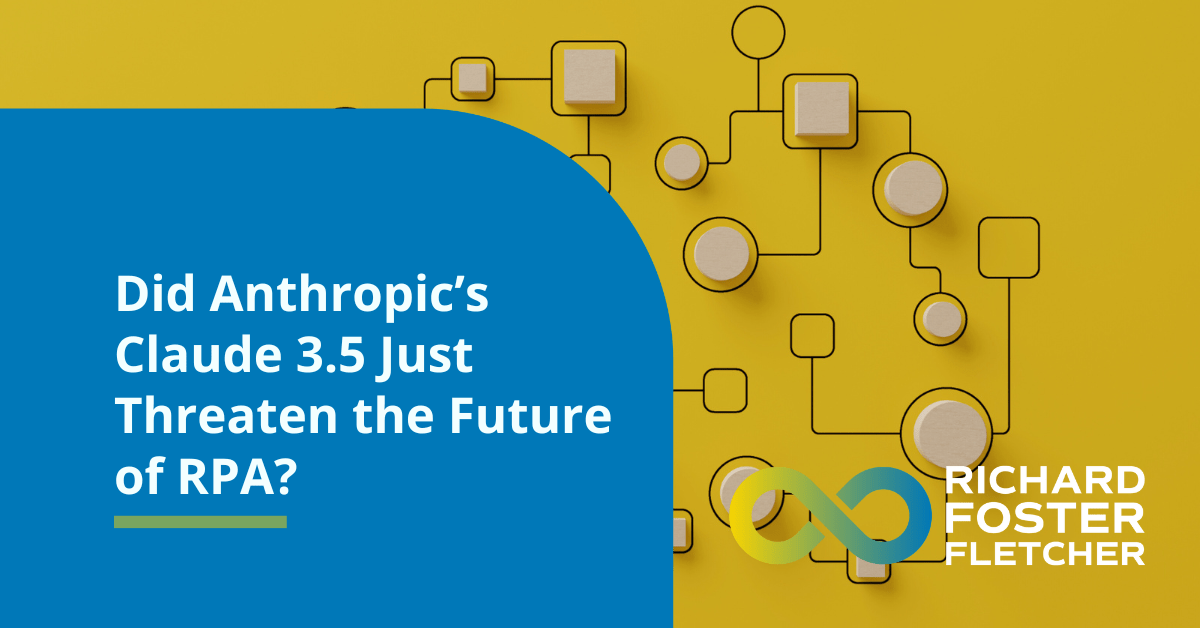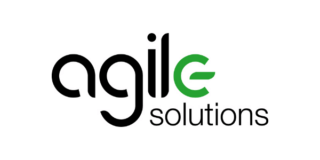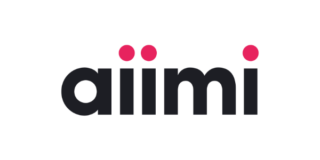
Did Anthropic’s Claude 3.5 Just Threaten the Future of RPA?

With the latest update to Claude 3.5, AI research lab Anthropic has taken a significant step forward in automation by enabling the model to interact with computers in ways previously reserved for Robotic Process Automation (RPA) tools. Claude 3.5 can now view screens, move cursors, click buttons, and type text—capabilities that allow it to fill out forms, navigate websites, and interact with software applications. Essentially, these are the same functionalities that RPA providers like UiPath and Automation Anywhere have been offering for over a decade, though powered by a fundamentally different approach.
This shift raises a big question: does Claude 3.5 represent the next stage of automation, one that could eventually make RPA bots obsolete?
The Shifting Landscape of RPA and AI Agents
RPA technology has long been associated with handling repetitive, rule-based tasks within businesses, like transferring data between systems when APIs aren’t available. With thousands of enterprise customers globally, companies like UiPath and Automation Anywhere have established themselves by enabling businesses to automate manual tasks and streamline operations. However, as AI advances, it’s beginning to encroach on areas once dominated by traditional RPA, promising not just automation, but adaptability and decision-making—hallmarks of an “agentic” approach.
Mark Geene, Senior VP at UiPath, highlighted that the automation landscape can be divided into tasks based on complexity and repeatability. For high-repetition, low-complexity tasks, traditional RPA works well. But as task complexity increases, the limitations of RPA become clear, and the adaptability of AI agents could offer a more robust solution. Salesforce’s Param Kahlon echoed this sentiment, suggesting that AI agents could handle tasks that require more nuanced responses and adapt to dynamic changes in ways traditional RPA cannot.
The Promise and Limitations of AI Agents
Anthropic’s latest updates for Claude 3.5 demonstrate the potential for AI agents to replace certain RPA functions by completing tasks with a more “human-like” approach. In contrast to RPA bots, which rely on strict rules and scripts, AI agents like Claude can make decisions based on evolving conditions, providing more flexibility in workflows.
Yet, despite this potential, AI agents aren’t yet ready to entirely replace RPA technology. RPA tools are known for their reliability and determinism—qualities essential in enterprise workflows. For many businesses, the reliability of RPA bots is crucial, especially in systems that require high accuracy and stability. As UiPath’s Daniel Dines pointed out, “RPA bots are deterministic, whereas AI agents are not.” In an enterprise setting, where workflows need to run predictably, the adaptable but non-deterministic nature of AI agents can be a drawback.
Why RPA Companies are Embracing AI Agents
Despite the rise of AI agents, RPA companies aren’t viewing these advancements as threats; rather, they see them as an evolution. UiPath, for example, has integrated Anthropic’s Claude 3.5 into its own platform, allowing users to benefit from both deterministic RPA and the adaptability of AI agents. Dines sees AI-led automation as the “Act Two” for UiPath, signalling a future where RPA and AI agents work in tandem rather than in competition.
Similarly, Automation Anywhere has introduced customisable AI agents that can learn from enterprise data and act autonomously within set guidelines. This hybrid approach—combining the structure of RPA with the flexibility of AI—provides businesses with the best of both worlds, allowing them to automate more complex workflows while retaining reliability.
The Challenges of Scaling Automation with AI
While AI agents hold promise, the reality of enterprise-level automation remains challenging. Even with nearly 20 years in the industry, RPA providers like UiPath recognise that large-scale automation is no easy feat. Dines shared that “automation is really hard… especially at scale.” The complexity of enterprise processes, often compounded by legacy systems, creates barriers that even the most advanced AI agents might struggle to overcome.
Moreover, enterprise customers often require solutions that have been proven to deliver consistent value. As AI agents continue to evolve, it will take time to build the same level of trust and reliability that traditional RPA has established over decades. Early tests of AI agents are underway, and while they show potential, businesses remain cautious, evaluating these tools before making any significant shift away from RPA.
What’s Next?
Anthropic’s innovations in AI agent capabilities signal a turning point in automation technology. But RPA’s established role in businesses, coupled with the nascent stage of AI agents, means that RPA is likely to remain integral to enterprise operations for the foreseeable future. As AI continues to develop, we may eventually see more businesses adopting a hybrid approach, combining RPA with AI agents to manage tasks across a broader complexity spectrum.
The rise of AI agents is undoubtedly reshaping the automation landscape, but RPA is here to stay—for now. Enterprises will be watching closely, testing, and evaluating these new tools to determine when and where they can truly replace RPA. As companies seek efficient ways to manage complex processes and adapt to dynamic environments, the future of automation may lie in blending the structure of RPA with the flexibility of AI agents.
















